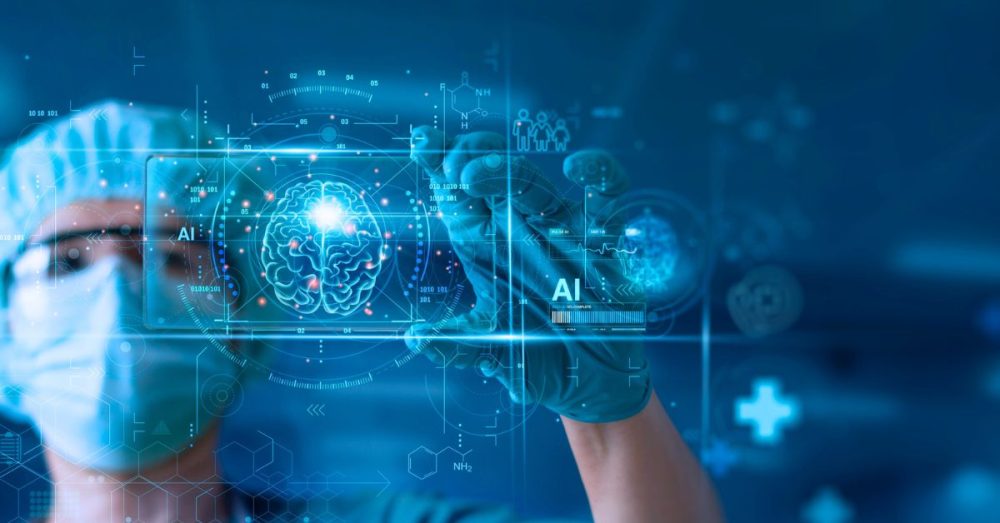Has artificial intelligence become the new standard or the new vice? Will this tool dumb down or upgrade our own intelligence?
Such questions remain unanswered as Artificial Intelligence (AI) continues to root itself in everything from home health, predicting wildfire movement, to decoding dogs’ barks, as previously reported on by The Dallas Express.
Despite the controversy surrounding AI, it is hard to argue against its advancements in the medical field. DX recently reported on a remarkable AI tool that predicts Alzheimer’s with 82% accuracy. And even though AI has been used in the medical field to some extent for decades, we are seeing even more evidence of its possible medical advantages right here in North Texas.
For example, Methodist Mansfield effectively uses AI to detect brain abnormalities in patients.
The AI technology at Methodist Mansfield was created by RAPID-AI, a software company specializing in brain imaging analysis. According to RAPID-AI’s webpage, the company claims to be “The Next Evolution in Clinical Decision Making and Patient Workflow.”
How does this technology work?
Methodist Mansfield employs the RAPID-AI technology to analyze CT scans for possible abnormalities. When the AI detects an anomaly, the medical staff receives a notification, reported KERA News. A neuro-radiologist evaluates the need for additional medical intervention. Implementing this tool allows the staff to reduce the time needed and safeguard brain tissue.
Will AI eventually replace doctors?
“At best, the AI tools will be assistive rather than replacing the professionals,” said Jamboor Vishwanatha, Ph.D., vice president for Minority Health and Health Disparities at the UNT-Health Science Center in Fort Worth.
“The outcome will be better and perhaps the surgery will be done much faster than what’s being done [with AI]. But at no point I estimate that a robot will take over what a surgeon can do,” added Vishwanatha, per KERA.
Here is more of what KERA reported on the use of RAPID-AI:
In adapting this tool, staff can save a significant amount of time, protecting brain tissue in the process.
“That speed gives us an extra five to 10 minutes shaved off of the arrival time,” Methodist Mansfield President Juan Fresquez said at an Arlington City Council meeting. “Just like a heart attack, when the blood flow is blocked, you start to lose heart muscle. It’s similar with the brain, every minute, every second counts.”
Methodist Mansfield utilizes the RAPID-AI technology by running CT scans through the software programmed to flag potential abnormalities. Once the AI finds an abnormality, the medical team is then notified. A neuro-radiologist then determines if there is a need for further medical treatment.
Fresquez would then recount the story of Kristin Booth, 45, who was taken to the hospital after waking up unable to speak or move her right arm.
According to the hospital’s in-house magazine Shine, the mother of five then underwent medical treatment to remove a large vessel blockage. Just two days after detection and treatment, she was cheering at her son’s basketball game.
Clots like the one Booth suffered could result in permanent trouble walking and speaking, as well as paralysis or numbness of the face, arm or leg if left untreated. But thanks to the AI software’s swift detection, staff were able to prevent these lasting effects.
But, as Fresquez later told KERA, AI technology is not entirely novel in healthcare.
“Artificial intelligence has been around for quite some time,” said Fresquez. “I’ve been in healthcare since the mid-80s and have had an opportunity to witness the early rise of artificial intelligence, which really began with Computer Aided Detection (CAD) and imaging. It’s really an infant version of what we have as far as artificial intelligence today.”
The use of AI has recently become a controversial talking point in recent years. A world where AI takes over traditional human roles has always been portrayed in countless pieces of science fiction media like the Will Smith-led film “I, Robot” or Disney-Pixar’s “Wall-E.” But with the advancements of generative AI tools like ChatGPT and Dall-E, the concern has never been louder.
SAG-AFTRA and WGA, the actors and writers unions, even took measures to prevent studios from using AI to create content during last year’s historic strikes.
But “fear” is not the word Neuro ICU Manager Rachel Cochran would use. She asserts that AI cannot do what trained doctors and radiologists can do, as the technology is not always perfect.


